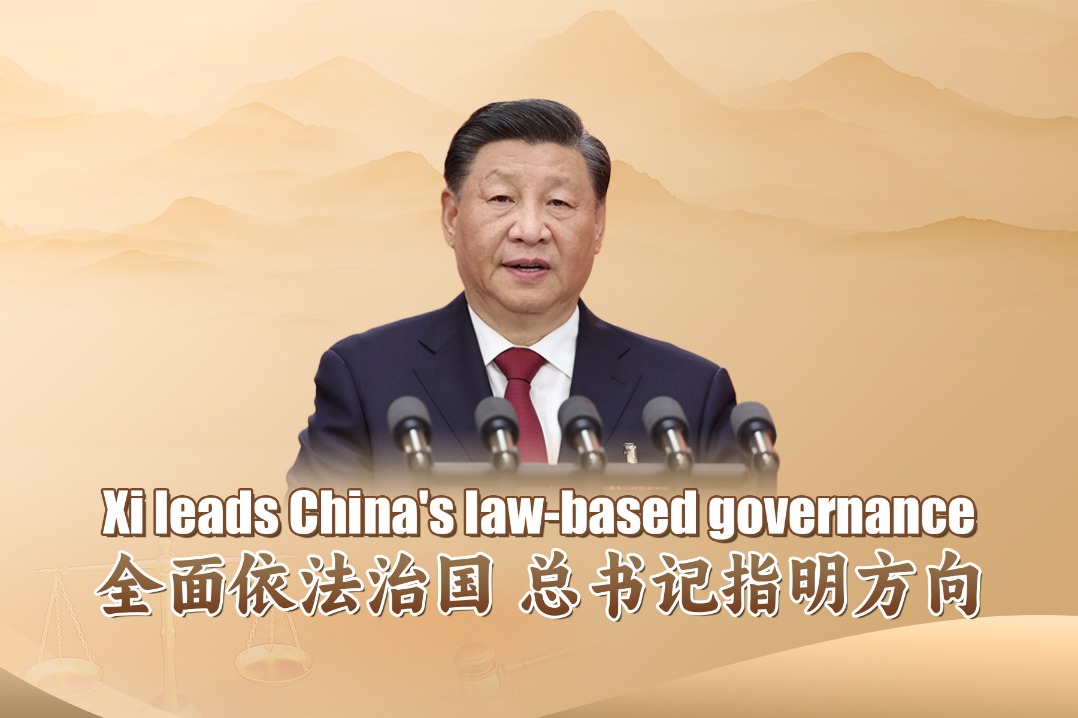US attempts to escape 'shutdown economy' with flawed, unequal policy
By Gregory K. Tanaka | chinadaily.com.cn | Updated: 2020-06-30 13:44

Many leaders in the United States, along with the directors of the private Federal Reserve Bank, argue giving large New York banks a bailout of $7 trillion will not only save the banks but also revive the US economy. What's wrong with this thinking? A little over 250 years ago, a Western economist persuasively wrote that giving handouts to elites at the top of the food chain in the form of new money creation will always fail to work its way down to benefit consumers — who are the ones that drive the economy.
It was in 1755 that French/Irish merchant banker Richard Cantillon explained in a ground-breaking essay it takes time for newly created money bestowed upon wealthy elites at the top of the food chain to make its way down to the average family or consumer. At each stage — going from elite bankers to the largest corporations, to the white collar workers, and all the way down to the blue collar worker and ultimately to the government-supported underclass — the distribution of money takes time. By the time it reaches the bottom rung, inflation will have eaten away much of the value of any new money originally created.
Referred to today as "The Cantillon Effect," this concept explains why it has been so futile for a private central bank like the Federal Reserve to print hundreds of trillions of new US dollars over the past 100 years while claiming this largesse will make its way to the average US consumer.
How does this make the average American feel? I am reminded of a brief moment of total emotional breakdown I experienced early in my own professional career, which might shed some light on what it feels like to be an American today. This happened on a warm summer's day on the outskirts of Cambridge, Massachusetts.
I was a junior officer working at the Harvard Business School and had been invited along with other staff members of the administration to go to the dean's country farmhouse. Out of some 12 people attending, I was the only person who wasn't white.
And here is where it gets strange. As we began to eat lunch, the dean asked all of us to sit in a circle so we could talk about how the year went for all of us and what we had learned. I don't know why, but I was the first person he asked to speak.
And suddenly I froze. Many of the others in the room were close associates with whom I had worked during the past year, but somehow I could not speak. I was known for being garrulous and outspoken. But as I look back on that event today, I can't help but feel my inability to say a word was linked to the mismatch between my humble upbringing in a small but adequate house in southern California — one that stood literally four doors down from the railroad tracks — and this well-appointed cabin of a wealthy New Englander.
It seems I had temporarily been locked into the socioeconomic divide that stood between my upbringing and the elite and unfamiliar surroundings in which I found myself. Never mind that I had earned an MBA from Harvard. At this moment, I was overcome by "the gap between rich and poor"—a gap made even worse today, I might add, by an unemployment rate of 39 percent if calculated with the unemployment formula of earlier decades.
And so today as I see the many Americans who find themselves in a "shutdown economy" — it strikes me there is an underreported inability of the rich in America to know what the middle and working classes are experiencing today, just like my dean had been at a complete loss at seeing me unable to speak.
There is a wide gulf between the lives of the wealthy and the rest of US society today, which could be perhaps more aptly described by the word "incommensurability". The term was coined by postcolonial writer Gayatri Spivak, who wrote powerfully about the inability of colonizers from England to understand the colonized people of India.
So at a time when the private Federal Reserve Bank and its elite backers continue to print trillions and trillions to "give back" to themselves through purchase of toxic bonds and mortgages from those same banks, we would all do well to remember what Richard Cantillon once taught us about the value of newly created money, and what Spivak implores us to remember about the inability of the rich to understand the plight of those who aren't.
And while megabank executives are paying themselves hundreds of millions of dollars in bonuses, the US government was only able to muster a one-time $1,200 handout to help the average taxpayer survive in this broken-down economy.
We still haven't learned the lesson taught to us by Richard Cantillon. We remain colonized.
Gregory K. Tanaka is a foreign correspondent, an anthropologist and the author of Systemic Collapse and Renewal.
The opinions expressed here are those of the writer and do not represent the views of China Daily and China Daily website.
























